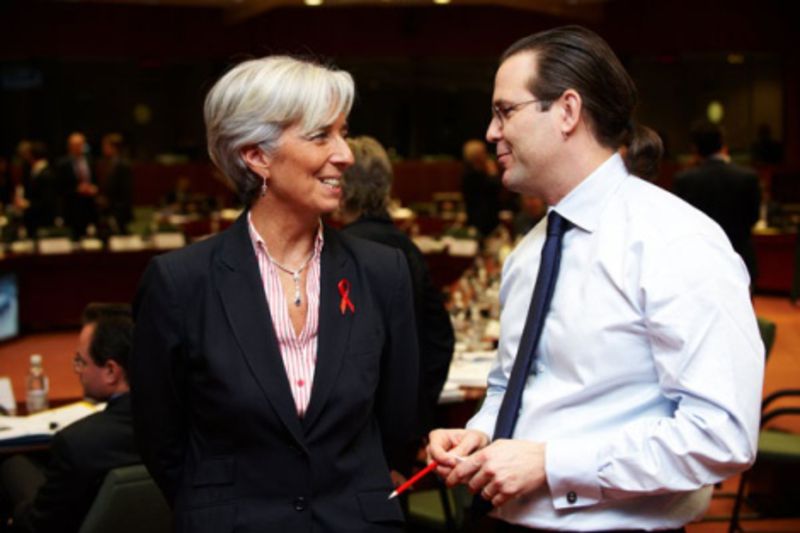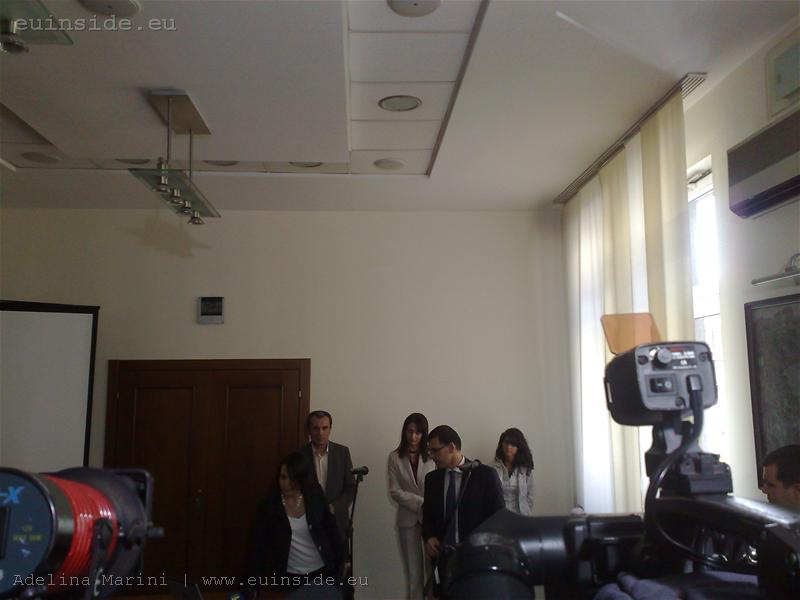GERB presents its programme for governance
Adelina Marini, June 1, 2009
 GERB supports the construction of the second nuclear power station "Belene", said Vladimir Uruchev who presented the energy policy of the party as part of its programme for governance. Uruchev is at the moment an MEP and is heading for a second term in the European parliament with an expertise in energy. He said that a country that doesn't have any resources has no other alternative but nuclear energy. But it should be in a package with the renewable energy sources which, Uruchev said, must be the first of the priorities of the Bulgarian energy policy. But Mr. Uruchev underlined that Bulgarian citizens shouldn't bare additional loan burden for the construction of the "Belene" power station. He probably meant the loan that the current government is negotiating with Russia for 3,8 bn euro.
GERB supports the construction of the second nuclear power station "Belene", said Vladimir Uruchev who presented the energy policy of the party as part of its programme for governance. Uruchev is at the moment an MEP and is heading for a second term in the European parliament with an expertise in energy. He said that a country that doesn't have any resources has no other alternative but nuclear energy. But it should be in a package with the renewable energy sources which, Uruchev said, must be the first of the priorities of the Bulgarian energy policy. But Mr. Uruchev underlined that Bulgarian citizens shouldn't bare additional loan burden for the construction of the "Belene" power station. He probably meant the loan that the current government is negotiating with Russia for 3,8 bn euro.
GERB presented its "Programme for the European Development of Bulgaria" by underlining that it is realistic and based upon a lot of unknown things like the development of the global financial and economic crisis or the state of the country because GERB doesn't believe the government.
Rehabilitation of the National office "Police" and the Unit for fight with organised crime, urgent changes in the legislation for local governance and the local administration so that the function of municipal police is created, and also changes in the Penal code, are part of the tasks that GERB envisage in their programme for governance. A major aim is the restoration of the rule of law and elimination of the current practice for prolonging trials because one of the sides doesn't appear in court. The idea is the investors that will be attracted to feel secure and protected as well as the Bulgarians that have left the country to feel good when they return, because Bulgaria needs them. The priorities of GERB in the sphere of home affairs and the judicial system were presented by Tsvetan Tsvetanov who added that his party will work for the elimination of the doubling of functions. He did not explicitly mention the State agency "National security" but obviously he meant it because this is the only agency that covers the functions of other institutions in the sphere of security.
And with regard to the economic part of the programme for governance, GERB promises to decrease the required capital for registration of a Ltd to 1 euro. At the moment to register an Ltd it is required to present 5,000 levs capital (2,564 euro). Beside this GERB will have financial policy that is entirely complied with the Stability and growth pact of the EU. In his speech before the presentation of the programme, the leader of the party Boyko Borisov said in a video connection as he wasn't present in the hall, that nevertheless the black commercials that are going on against him, GERB will pay very serious attention to the elderly people but he doesn't promise them a raise in pensions. The commercials that are being aired in the media since recently quote Borisov as saying in Chicago that Bulgarian elderly are stupid because they are easily lied by the communists.
GERB intends to decrease the social security burden with up to 0.5 %, speeding of the procedure for return of VAT and 30 days to use investments for over 5 mn levs and 25 new jobs.
GERB pays very serious attention to agriculture and intends to introduce a system for insurance and mutual assistance to cover damages in farming caused by bad weather. And also - changes in the legislation related to farming together with measures that are complied with the reform of the CAP (Common Agriculture Policy) which started 2 years ago.
The only applauses beside those after the speech of the leader, were for Miroslav Naydenov who presented the policy of GERB for Agriculture. He won the applauses after he said that GERB intends to introduce 20 years moratorium over the change of purpose of those forests that are being acquired through exchanges with the state. Naydenov also asked decentralisation in management of forests which now in their biggest part are managed by the state.
 | © Consilium
| © Consilium | © euinside
| © euinside